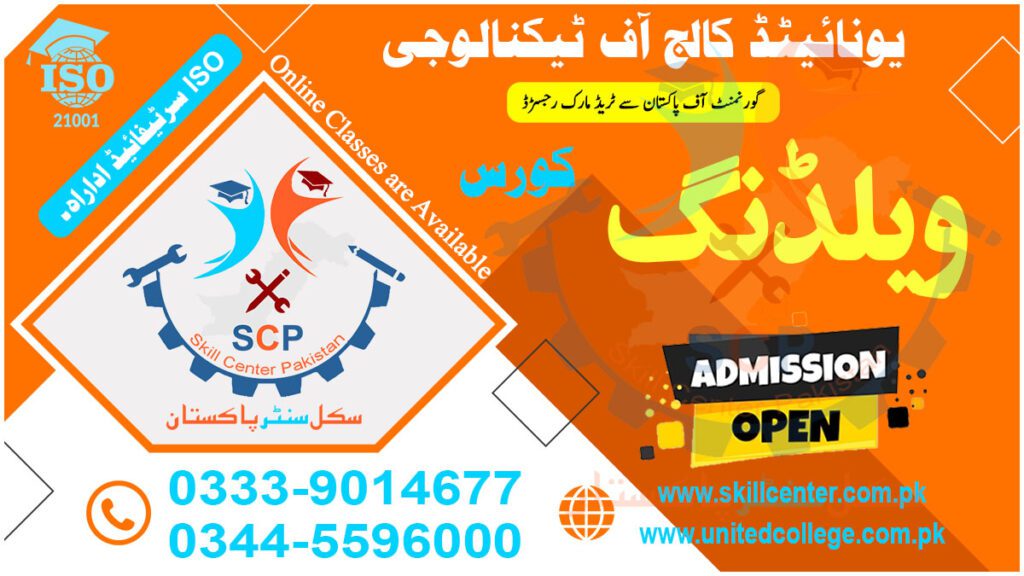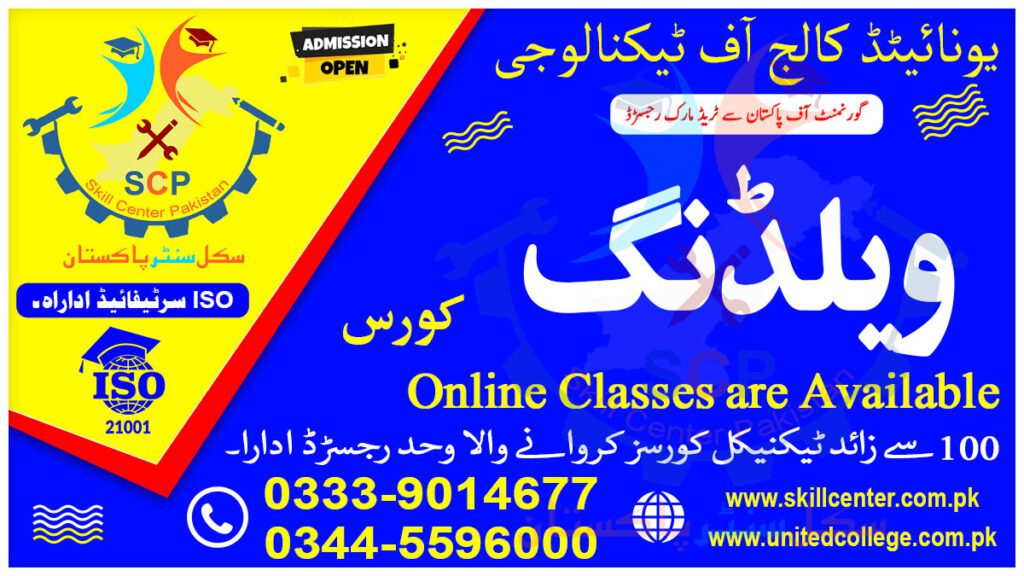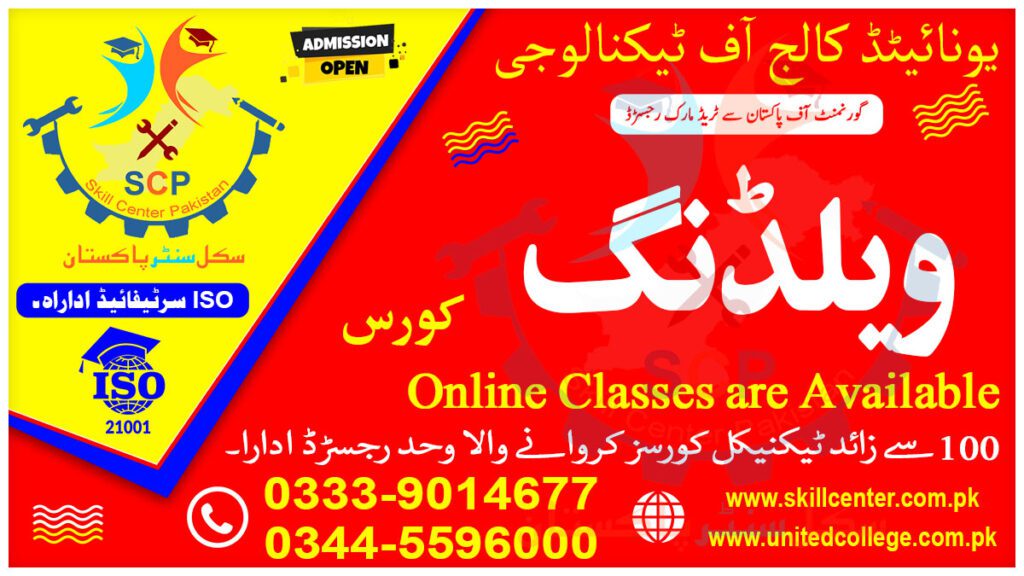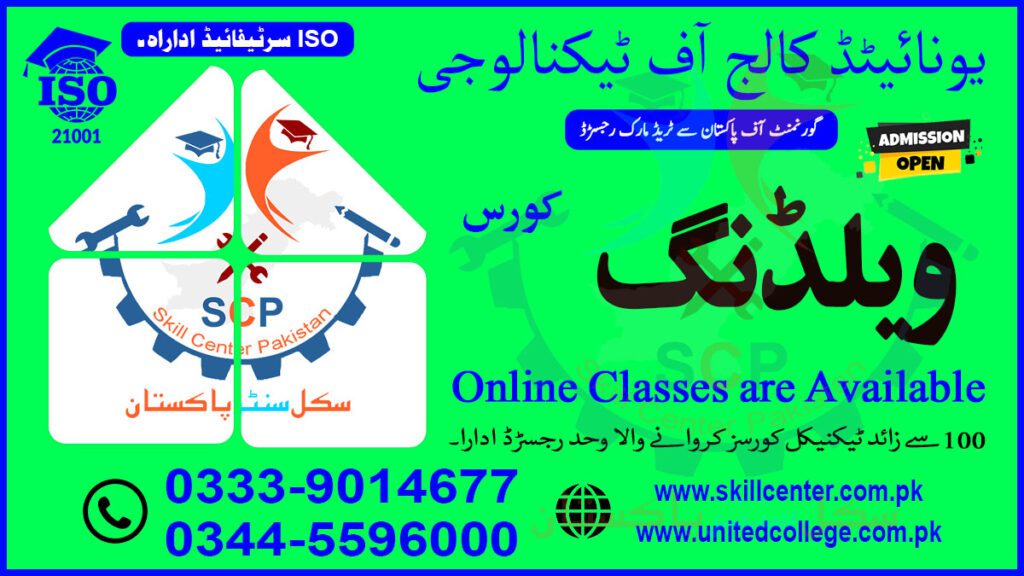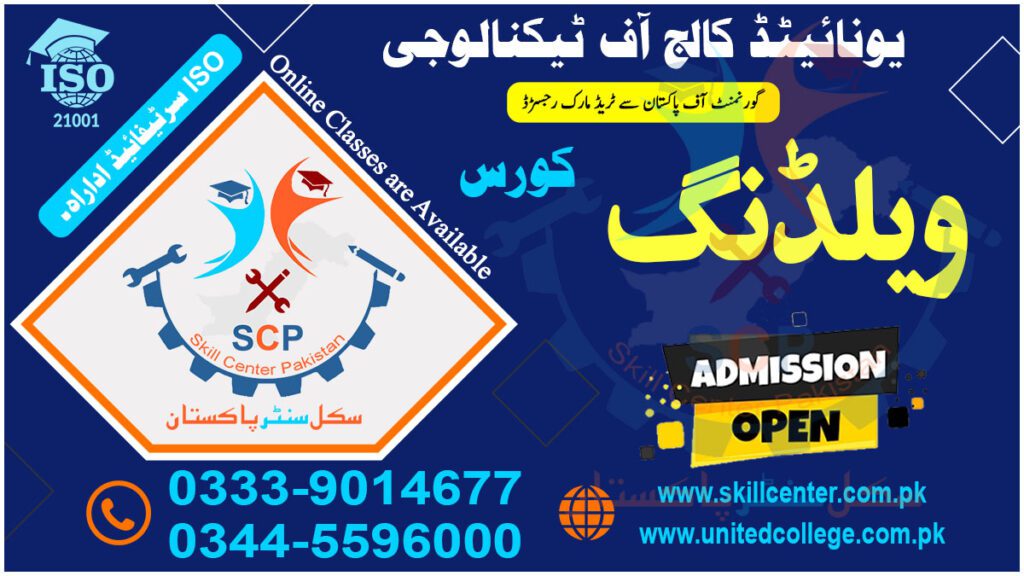







Welding Course in Mirpur AJK Pakistan 0333-9014677
Introduction
The education and training needed to become a professional welder are accessible in Pakistan through welding schools. A highly skilled craft, welding is necessary for numerous sectors, including engineering, manufacturing, and construction. To prepare students for a profession in this industry, welding courses in Pakistan could include a variety of topics. The training will typically involve theoretical education covering subjects including welding standards, welding equipment, welding processes, and materials. The course may also involve practical instruction in a workshop setting where students will work on actual projects and learn welding methods.
In Pakistan, technical and vocational schools and independent training companies may provide welding courses. Both individuals with little to no prior welding experience and those who are working in the sector now and seeking to advance their knowledge and abilities may benefit from these courses.
Students may be prepared to work in a variety of sectors after completing a welding education in Pakistan, including engineering, manufacturing, and construction. Also, they can be qualified to pursue additional welding education or certification, such as through an apprenticeship program or a certification test. Welding is a highly in-demand profession in Pakistan since it is necessary for many sectors of the economy of the nation. A variety of businesses need welders, and there is a rising demand for qualified welders to fill these roles. A welding school may provide people with the knowledge and abilities they need to work in this fascinating and lucrative industry.
Welding Training Course Outline
Here is a hypothetical syllabus for welding training in Pakistan:
Introduction to welding
- Overview of welding and its importance in various industries
- Different types of welding processes
- Safety precautions for welding
Welding materials and equipment
- Different types of metals and alloys used in welding
- Properties of welding materials
- Types of welding machines and equipment
Welding techniques
- Basic techniques of welding including stick welding, MIG welding, TIG welding
- Advantages and disadvantages of each welding technique
- How to perform welding in different positions
Welding joints and applications
- Types of joints and their applications
- Interpretation of welding symbols and drawings
- Welding techniques for specific applications such as pipelines, bridges, and buildings
Quality control and inspection
- Standards and codes of welding
- Different methods of inspection and testing
- Quality control techniques for welding
Welding safety
- Hazard analysis and risk assessment
- Personal protective equipment (PPE) and its importance
- Fire prevention and control
Practical training
- Hands-on welding experience in a workshop environment
- Practice in different welding techniques and positions
- Real-world welding projects
Upon completion of the welding course, students will have acquired practical welding skills and the knowledge needed to work in various industries. They will be able to identify the appropriate welding technique and apply it to different applications. Additionally, students will be able to interpret welding symbols and drawings and adhere to the relevant codes and standards.
In Pakistan, technical and vocational schools and independent training companies may provide the welding course. Students may also be prepared by the system for additional welding training or certification, such as through an apprenticeship scheme or a certification test. Welders are in great demand across a range of sectors, including engineering, manufacturing, and construction, and the welding business in Pakistan is expanding. A welding education in Pakistan can give people the knowledge and abilities they need to pursue a lucrative career in this industry.
Course Duration: 3 MONTH
Total Fee: 30,000/-
Welding Course in Mirpur AJK Pakistan 0333-9014677
Welding Course in Mirpur AJK Pakistan 0333-9014677
Welding Course in Mirpur AJK Pakistan 0333-9014677
Welding Course in Mirpur AJK Pakistan 0333-9014677
Welding Course in Mirpur AJK Pakistan 0333-9014677


